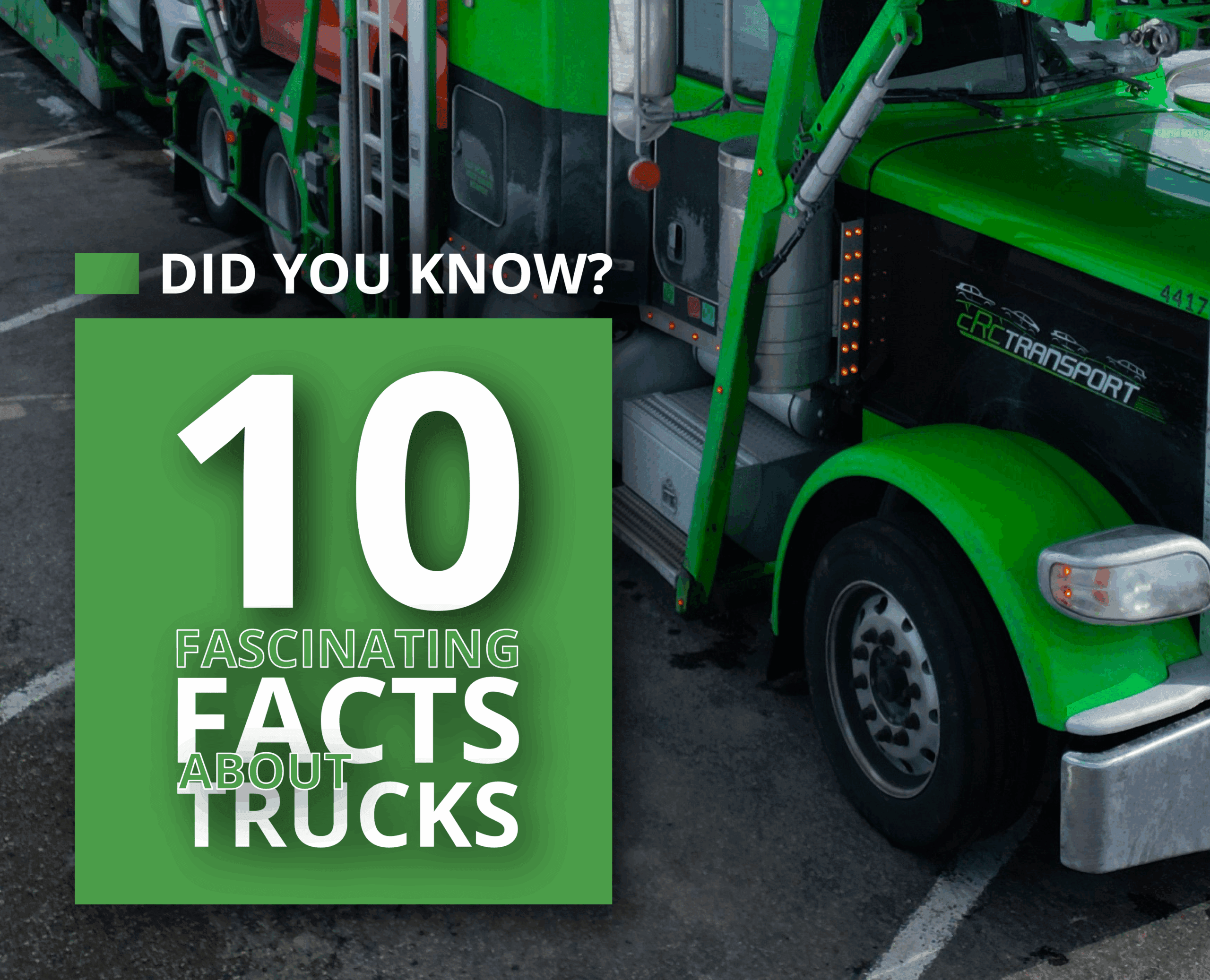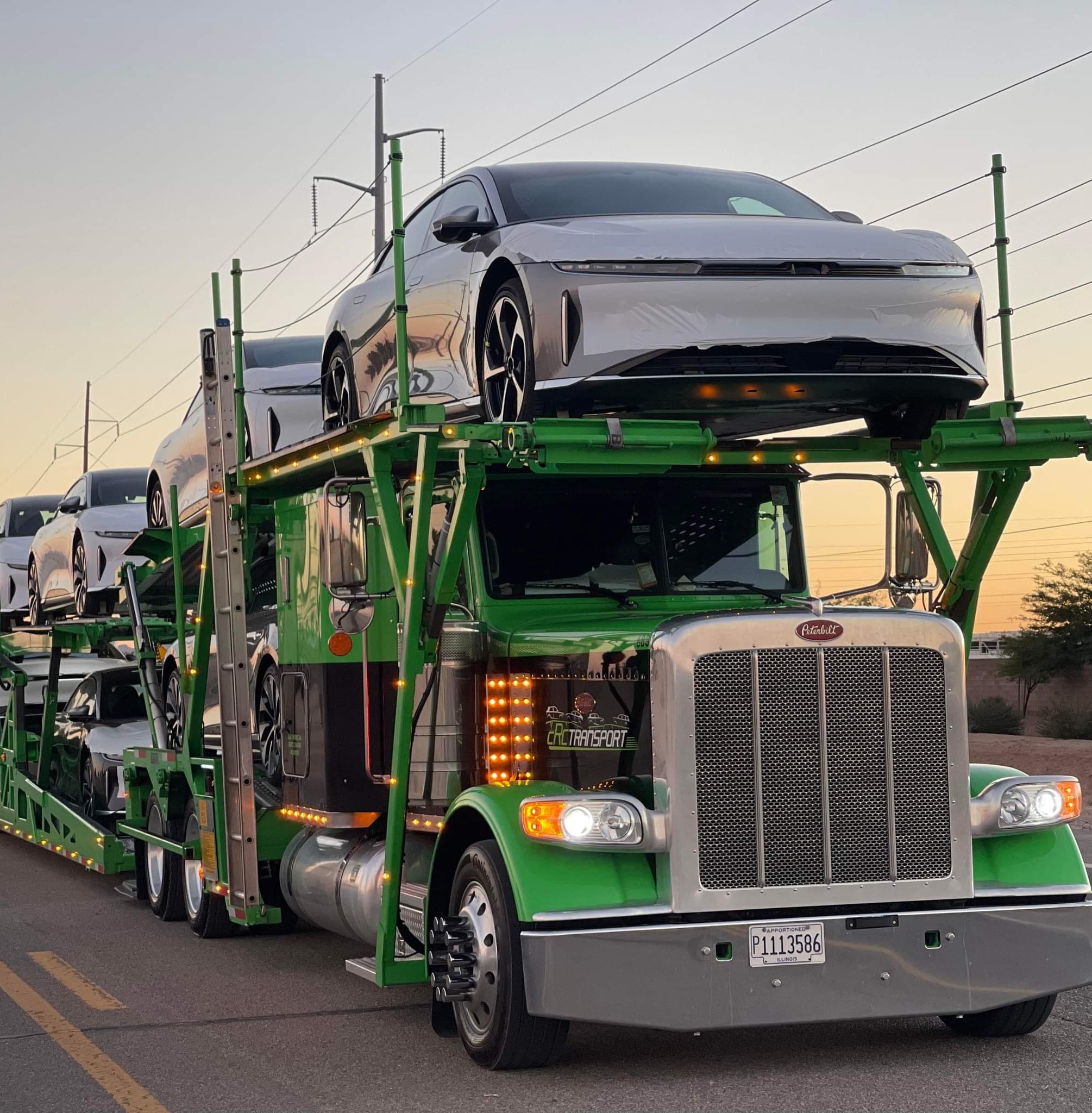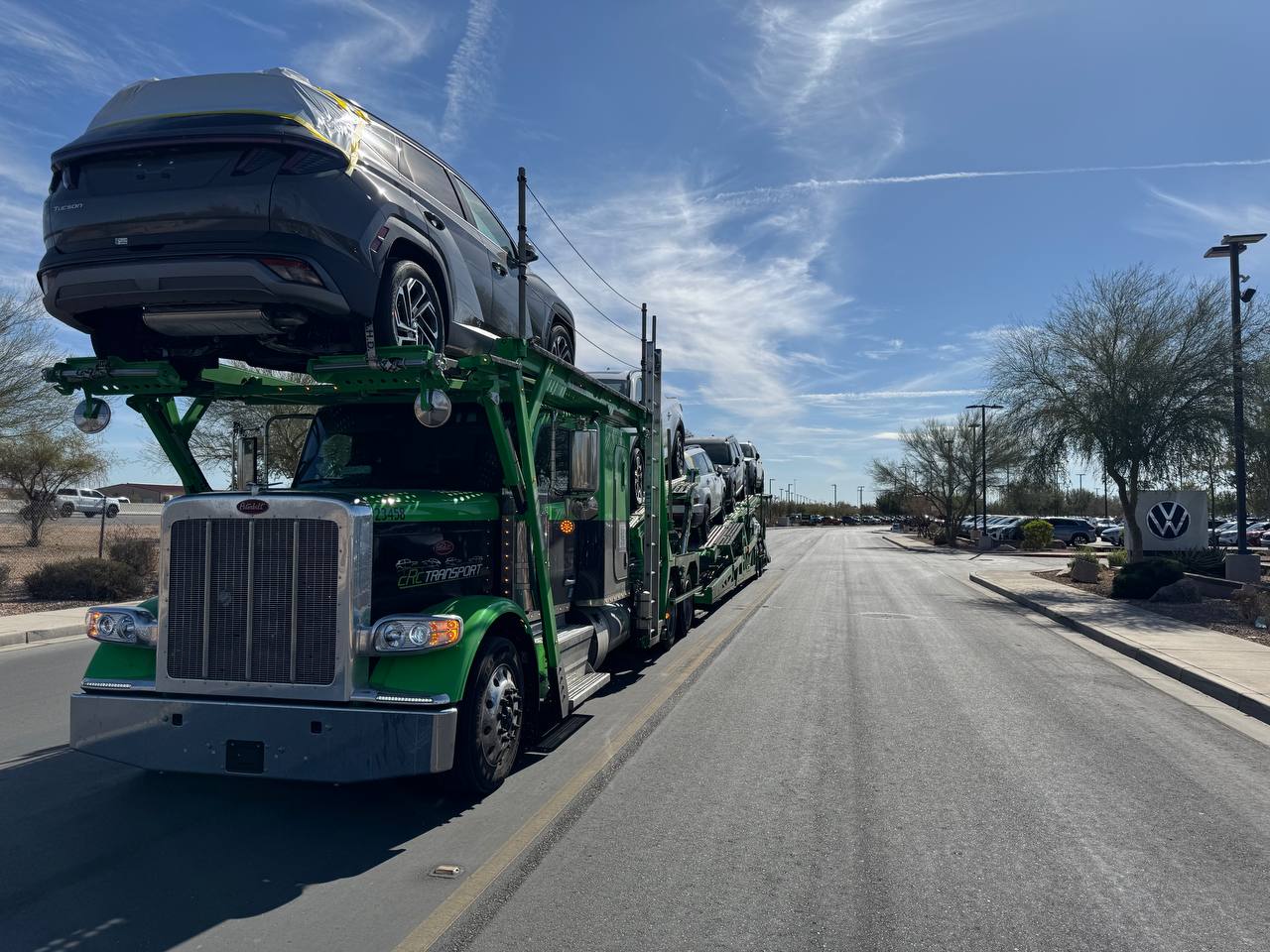10 Fascinating facts about trucks. Did you know these?

The trucking industry plays a vital role in global commerce, ensuring the efficient movement of goods and supporting economic stability. Beyond their operational importance, trucks represent a rich history of innovation and technological advancements.
In this blog, we’ll explore 10 fascinating facts about trucks that highlight their evolution, impact, and future potential.
1. The birth of motorized freight transport
In 1896, Gottlieb Daimler introduced the first motorized truck, powered by a modest 4-horsepower engine. This revolutionary innovation marked the beginning of modern logistics, transforming the way goods were transported. Daimler’s invention paved the way for the trucking industry we know today, showcasing the potential of mechanized freight transport.
2. The backbone of the economy
Trucks transport approximately 70% of all freight in the United States, underscoring their importance in supply chain operations. From delivering perishable goods to moving heavy industrial equipment, trucks are essential for ensuring products reach their destinations efficiently. This industry contributes significantly to GDP, enabling just-in-time deliveries that keep businesses running smoothly.
3. The evolution of design and technology
Early trucks were simple machines with limited horsepower and basic functionality. Over time, they’ve transformed into sophisticated vehicles equipped with advanced technologies such as:
- GPS navigation systems
- Fuel-efficient engines
- Automated braking and collision avoidance systems
These innovations not only enhance safety but also improve driver comfort and operational efficiency.
4. Engineering marvels. The BelAZ 75710
The BelAZ 75710, a mining truck from Belarus, is an engineering feat. With the ability to carry up to 450 tons of material (equivalent to the weight of 400 cars), it’s one of the largest trucks in the world. Powered by two diesel engines and measuring over 20 meters in length, it’s designed to perform in extreme mining conditions, showcasing the incredible capabilities of modern truck engineering.
5. The rise of autonomous trucks
Autonomous trucks are reshaping the logistics industry. In 2016, the first self-driving truck successfully completed a 120-mile beer delivery, marking a milestone in freight transport.
Benefits of autonomous trucks include:
- Enhanced safety
- Reduced driver fatigue
- Improved efficiency
As technology advances, these vehicles are set to revolutionize the industry further.
6. Sustainability in trucking
The trucking industry is embracing sustainable practices to reduce its environmental impact. Efforts include:
- Adoption of electric and hybrid trucks
- Investment in hydrogen fuel cell technology
- Use of eco-friendly logistics practices
These changes align with global efforts to combat climate change and promote greener transportation solutions.
7. Trucks in popular culture
Trucks symbolize freedom, resilience, and adventure, making them prominent figures in popular culture. They’ve been featured in movies, songs, and literature, embodying the spirit of the open road. Events like Monster Jam highlight the public’s fascination with these powerful machines, drawing millions of fans worldwide.
8. The human element in trucking
Behind every truck is a dedicated driver. The trucking profession requires resilience, skill, and adaptability. Drivers navigate diverse terrains and challenging weather conditions to ensure goods are delivered on time. Their hard work keeps supply chains running and communities connected, emphasizing the critical human element in this industry.
9. Advanced safety and efficiency technologies
Modern trucks are equipped with cutting-edge safety and efficiency features, such as:
- Collision avoidance systems
- Real-time tracking
- Telematics and fleet management software
These advancements optimize operations, enhance safety, and reduce operational costs, ensuring a smoother and more reliable freight transportation process.
10. The future of trucks
The trucking industry is on the cusp of significant transformation. Key trends shaping the future include:
- Widespread adoption of electric trucks to lower carbon footprints
- Integration of autonomous technology to improve efficiency
- Development of infrastructure to support sustainable practices
While these advancements promise a brighter future, challenges such as regulatory frameworks and workforce adaptation must be addressed to fully realize their potential.
Analytical perspective:
The trajectory of the trucking industry mirrors broader societal shifts towards sustainability and technological advancement. The move towards autonomous and electric trucks indicates a future where transportation is more efficient and environmentally friendly. However, this transition presents challenges, including the need for substantial infrastructure investments and addressing workforce concerns. Balancing innovation with practical implementation will be crucial in navigating the road ahead.
CRC Transport’s perspective:
At CRC Transport, we are acutely aware of the dynamic trends shaping the trucking industry. Our strategic approach involves integrating advanced technologies and sustainable practices to ensure we remain at the forefront of industry evolution. By embracing innovation, we aim to provide our clients with efficient, reliable, and eco-friendly transportation solutions, aligning with global movements towards sustainability and technological advancement.
The evolution of trucks from their inception to the present day underscores their integral role in global commerce and daily life. As the industry stands on the cusp of further advancements, stakeholders must collaborate to address challenges and harness opportunities. With a focus on sustainability, technology, and human capital, the future of trucking promises to drive progress and connectivity worldwide.
In summary, the trucking industry’s ongoing transformation reflects a commitment to innovation and sustainability, ensuring its continued relevance in an ever-changing world.
Reliable Experts in Automotive Transportation





